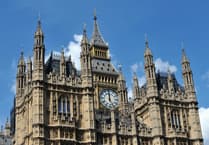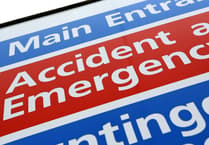Thousands of people claiming Universal Credit in Bath and North East Somerset could see major changes to how much council tax they pay next year.
People who receive the housing and childcare elements of Universal Credit could pay less council tax under the potential options currently being considered. One potential change could also see the very poorest people in the area — with a weekly income of £85.09 or less for a single person — spared from having to pay any council tax at all.
This could reduce the council tax bills of an estimated 2,500 to 3,000 households. But this could be funded by changing the levels of council tax support offered to other Universal Credit claimants — meaning that over a thousand other households receiving the council tax reduction could see their bills go up.
Bath and North East Somerset Council believes that there are 68 households who, under the proposed changes, could lose all their support.
There are no changes being considered for the other groups supported by the scheme: pensioners, vulnerable people of working age, and working age people who are not in receipt of Universal Credit.
Mark Elliott, the council’s cabinet member for resources, said: “None of the proposed options would save the council money. It is not a cost-cutting exercise. We are trying to improve fairness.”
He said that Bath and North East Somerset Council’s Local Council Tax Support scheme, which was last revised in 2017, currently recognised the housing and childcare elements of Universal Credit as income. But he argued that it was unfair to recognise these an income because they were designed to meet specific costs.
Mr Elliott said: “Council Tax is a regressive tax but we have to make the best of the system we’re currently required to operate. It is six years since the support scheme was last reviewed, and this took place when there was very little experience of how Universal Credit would operate in practice. Having looked at the research we’ve carried out, including comparisons with schemes run by other councils, there may be a case for change to improve the fairness of the scheme.”
The options are currently being considered by Mr Elliott. His decision will go through a consultation and a vote at full council in November before coming into effect on council tax bills in March 2024.
LDRS, John Wimperis

.jpeg?width=209&height=140&crop=209:145,smart&quality=75)



Comments
This article has no comments yet. Be the first to leave a comment.